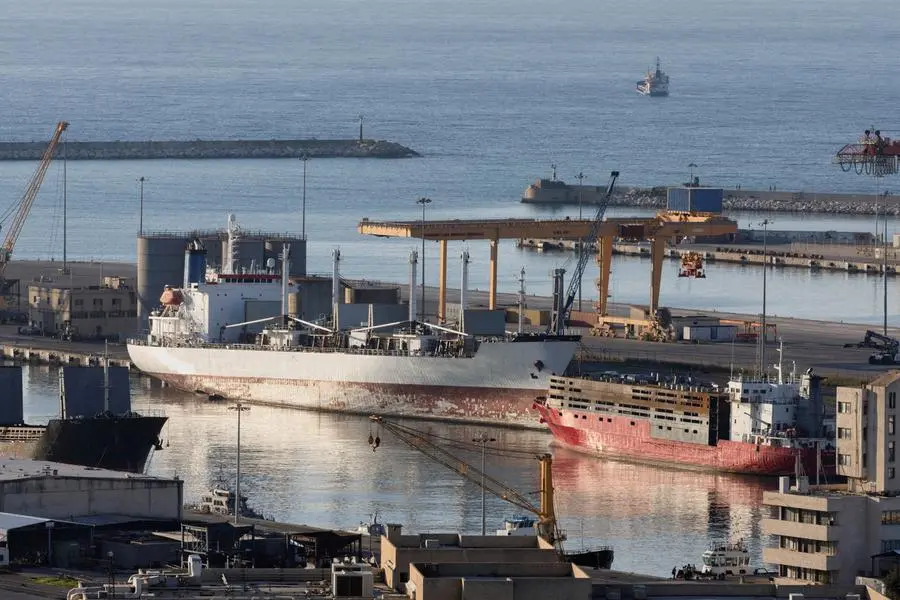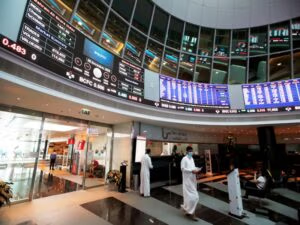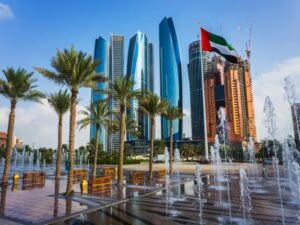Syria’s transitional government has signed an $800 million memorandum of understanding (MoU) with DP World to develop the port of Tartous, marking the largest investment deal to date under interim President Ahmed al-Sharaa. The agreement, reported by Syrian state news agency SANA on Friday, comes just days after U.S. President Donald Trump announced his intention to lift sanctions on Syria.
Multi-Purpose Terminal and Free Trade Zones
According to news agency Reuters, the deal will enable DP World — a subsidiary of UAE investment company Dubai World — to develop, manage, and operate a multi-purpose terminal at Tartous. It also includes cooperation in establishing industrial and free trade zones, as well as dry ports and freight transit stations in strategic areas across the country.
“The two sides also agreed to cooperate in establishing industrial zones and free zones in addition to dry ports and freight transit stations in a number of strategic areas within Syria, reflecting both parties’ commitment to supporting economic development and facilitating trade and transport,” Reuters reported.
A Boost to a Struggling Economy
The Syrian government is looking to attract foreign investment to rebuild its war-ravaged economy. The agreement follows President Trump’s historic announcement to lift sanctions on Syria, made during his visit to Riyadh earlier this month.
Trump Meets Syrian Leader in Saudi Arabia
On May 14, Trump became the first US president in 25 years to meet a Syrian leader, when he sat down with Ahmed al-Sharaa in Saudi Arabia. Trump explained the decision to lift sanctions followed consultations with Saudi Crown Prince Mohammed bin Salman and Turkish President Tayyip Erdogan, who had both strongly urged a policy shift.
“Trump said he took the decision to lift sanctions after discussions with Saudi Crown Prince Mohammed bin Salman and Turkish President Tayyip Erdogan, whose governments have both strongly urged the lifting of sanctions.”
Sanctions’ Legacy: Pressure on Assad, Pain for Civilians
US sanctions on Syria date back decades and were intensified under President Bashar al-Assad, who ruled from 1971 to 2024. Intended to isolate Assad’s regime, the sanctions ultimately inflicted severe hardship on Syrian civilians.
“Trump, who just visited Saudi Arabia, Qatar and UAE in the Middle East, said the sanctions had served an important function and that it was time for Syria to move forward.”
Washington Still Weighing Recognition
Although Trump has pledged to lift sanctions, the US has not formally recognized Sharaa’s transitional government. The Trump administration is still evaluating its approach, a question left open by former President Joe Biden.
Caesar Act Waivers in the Pipeline
Secretary of State Marco Rubio said on May 15 that Trump plans to issue waivers under the Caesar Syria Civilian Protection Act, which had previously imposed strict sanctions on Assad and penalized foreign entities doing business with Syria.
“US Secretary of State Marco Rubio said on 15 May that Trump intends to issue waivers under the ‘Caesar Syria Civilian Protection Act’…”
Why Now? Syria’s Push for Re-engagement
In recent months, Syria has worked to convince Washington it is no longer a threat but a potential partner. The Sharaa government claims to be engaging in indirect talks with Israel and distancing itself from designated terrorist groups.
“Syria has been trying to convince the US that it is not a threat but a potential partner and that it was engaged in indirect talks with Israel to de-escalate tensions with the US’s Middle Eastern ally– despite Israel’s bombing of Syria and occupation of its territory, news agency Reuters said last week.”
A Bid for Legitimacy
Since seizing power in December 2024, Sharaa has slowly gained international legitimacy. His government has focused on positioning itself as moderate, promising cooperation on counterterrorism and supporting minority rights — a notable shift amid ongoing sectarian tensions following Assad’s fall.
“The new Syrian government led by Sharaa has been projecting itself as a moderate force that could be acceptable to the international community, including by distancing itself from designated ‘terrorist’ groups.”
“Sharaa’s dispensation has also promised to cooperate with other countries on ‘counterterrorism’ measures and supporting minority rights.”






